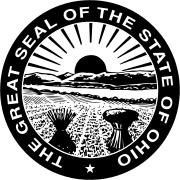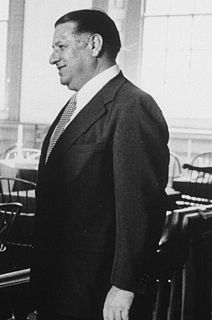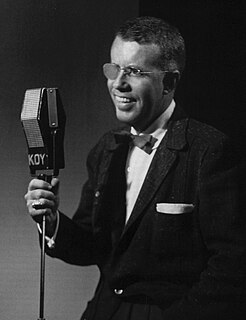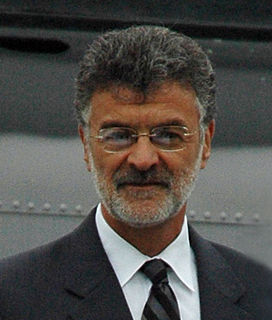Background
On March 24, 1978, Kucinich fired his police chief of only four months, Richard Hongisto, on live local television. Capitalizing on the issue, Kucinich's opponents began circulating petitions for the mayor's recall. Kucinich's opponents faulted him for what they perceived to be an inability to compromise, as well as the youth and inexperience of some of his appointees, arguing he was incapable of governing a struggling city.
Richard D. Hongisto was a businessman, politician, sheriff and police chief of San Francisco, California, and Cleveland, Ohio.
Initially, the drive began slowly. Then on April 10, Cleveland City Council voted to investigate a "midnight raid" by administration officials on the office of economic director Joseph Furber. Kucinich angrily called council "a group of lunatics" and "a bunch of buffoons." He also stated that "it's hard to believe that so many people can be so stupid," and asserted that "if they're not stupid then they are crooked, or maybe both." This led to council members joining the recall drive. Realizing his mistake, Kucinich offered an apology. However, on the same day, Bob Weissman assailed council and business leaders in a speech to the Harvard Business Club.

Cleveland City Council is the legislative branch of the government of the City of Cleveland in Ohio. Its members are elected from 17 wards to four-year terms. The number of council members has decreased over the years. In 1885 there were 50 council members, by the 1960s there were 33, and in 1981 Cleveland voters approved reducing council to 21 members.
In the summer of 1978, Kucinich set up special police patrols, in response to high crime in public housing projects. Police refused to obey the order. The administration then suspended thirteen officers and ultimately touched off a two-day police strike. It was another first in the city's history.
Additionally, Kucinich vowed to veto a plan to lease a city-owned dock to the Cleveland-Cuyahoga County Port Authority, which wanted the property so that it and Republic Steel could build a new ore dock. At a July 10 council meeting, the mayor spoke against the lease and started to note the contrast between the actions of council on the matter and its cautious pace on Kucinich's recommendation to hire a computer company.

Republic Steel is an American steel manufacturer that was once the country's third largest steel producer. It was founded as the Republic Iron and Steel Company in Youngstown, Ohio in 1899. After rising to prominence during the early 20th Century, Republic suffered heavy economic losses and was eventually bought out before re-emerging in the early 2000s as a subsidiary. The company currently manufactures Special Bar Quality (SBQ) steel bars and employs around 2,000 people. It is currently owned by Grupo Simec, based in Guadalajara, Mexico.
"Stick to the issue," ordered Council President George L. Forbes. Kucinich responded, "Mr. Chairman, I determine the issue." "Not in this chamber," Forbes retorted. Kucinich still persisted: "Tactfully submit that you will permit me to continue my remarks." "Just one moment," Forbes said, "I chair these meetings..." Kucinich interrupted, "You have no ability, Mr. Chairman to censor my remarks!"
George Lawrence Forbes is an American politician of the Democratic Party. From 1974 to 1989, Forbes served as one of the most powerful presidents of the Cleveland City Council. He is the former President of the Cleveland NAACP and is semi-retired from practicing law.
After using three of his four minutes at the podium to argue with Forbes, Kucinich continued to spend his last minute comparing the issue with the computer contract. In response, Forbes declared the mayor out of order and shut off his microphone. Infuriated, Kucinich continued to protest: "Mr. Chairman, this is a corrupt deal! I will not be silenced, Mr. Chairman!" After a statement by councilman Lonnie Burten, Kucinich stormed out of Cleveland City Hall followed by 15 aides. The action brought applause from the steelworkers union, who turned out in support of the ore dock. "Keep on going," one of them shouted. Forbes attempted to restore order. "Let's be quiet while they walk out."

Cleveland City Hall is the seat of government for the city of Cleveland and the home of Cleveland City Council. It opened in 1916 and is located at 601 Lakeside Avenue in the Civic Center area of downtown Cleveland. The building was the first of its kind designed by Cleveland architect J. Milton Dyer for governmental purposes for a major U.S. city. At the time of its construction, the Hall was to continue the city planning of Daniel Burnham's 1903 Group Plan. City Hall stands as a historic landmark that was added to the Cleveland Landmarks Commission.
Council Majority Leader Basil Russo, who had begun speaking before the mayor left, also pushed for order. "Mr. Chairman, that is wrong. We cannot allow the administration to totally break down communications in city government." He continued, "We don't want him to leave, I think he's hurting the interests of all the residents of the city of Cleveland." Although council approved the lease afterward, Republic Steel decided to leave the city and build its dock in Lorain.
Recall drive
If anything, these incidents fueled the recall drive even more. At first, recall petitions were some 3,355 signatures short of the required 37,552 when first submitted in May. Proponents of the anti-Kucinich movement had 20 more days to make up the difference and on June 1, an additional 5,321 signatures were obtained.
Although Kucinich challenged the validity of the signatures, Common Pleas Judge John Angelotta ruled against him. The Court of Appeals and the Ohio Supreme Court upheld Angelotta's ruling and a recall election date was set for August 13, the first Sunday election in local history. The mayor's response was "Bring on the recall!"
The Plain Dealer , The Cleveland Press , The Cleveland Call and Post , the Republican and Democratic parties, the AFL-CIO and 24 of the 33 council members urged the mayor's recall. Kucinich fought back with television commercials showing business leaders cutting up a cake shaped like Cleveland City Hall.













